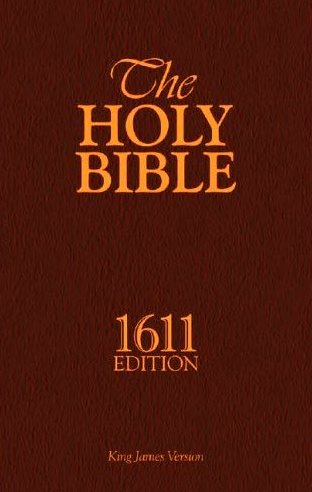 The most effective tool in experiencing revelation and knowledge of the will of God for your life each day is by way of His written word in Scripture, aptly referred to as the Word of God. If you happen to be someone who doubts the authenticity of Scripture as justification not to read it, consider this: While it was human beings that wrote the scriptures, it was God that inspired and ensured its accuracy. How is this not possible? From Moses to John the Revelator, God has had His hand on the accuracy and inerrancy of His written word. If God is not able to preserve the authority of His Word throughout these many centuries and generations, then how does He have the authority to do anything to impact the course of His creation? Please, do not allow yourself to stumble and be held back from receiving from God because you are not certain about the authority of the Bible. Pray for wisdom to be certain that God’s Word is His inspired Word of Truth.
The most effective tool in experiencing revelation and knowledge of the will of God for your life each day is by way of His written word in Scripture, aptly referred to as the Word of God. If you happen to be someone who doubts the authenticity of Scripture as justification not to read it, consider this: While it was human beings that wrote the scriptures, it was God that inspired and ensured its accuracy. How is this not possible? From Moses to John the Revelator, God has had His hand on the accuracy and inerrancy of His written word. If God is not able to preserve the authority of His Word throughout these many centuries and generations, then how does He have the authority to do anything to impact the course of His creation? Please, do not allow yourself to stumble and be held back from receiving from God because you are not certain about the authority of the Bible. Pray for wisdom to be certain that God’s Word is His inspired Word of Truth.
Of course, at some point the written Word of God needed to be translated into English. The following is the history of the translation of the King James Bible from the source, All About the Truth.org.
King James Bible – The Translators
 Of the original 54 men chosen to translate the King James Bible, only 47 finished the more than seven-year project, which was governed by very strict rules of translation. The translators were scholarly men who were experts in the biblical languages, and they were convinced of the inerrancy and authority of Scripture. Dr. Henry M. Morris, President of the Institute for Creation Research, said of these men, “It is almost certain that no group of Bible scholars before or since has ever been as thoroughly fit for their task as was the King James Translation Team.”
Of the original 54 men chosen to translate the King James Bible, only 47 finished the more than seven-year project, which was governed by very strict rules of translation. The translators were scholarly men who were experts in the biblical languages, and they were convinced of the inerrancy and authority of Scripture. Dr. Henry M. Morris, President of the Institute for Creation Research, said of these men, “It is almost certain that no group of Bible scholars before or since has ever been as thoroughly fit for their task as was the King James Translation Team.”
The planning of the translation project stipulated that the translators should be broken up into six panels, and each panel was given certain books of the Bible to translate. After the translations were done, a committee of 12-two translators from each of the six panels-reviewed the work based on a detailed set of guidelines that was established to ensure that the translators’ personal eccentricities and political prejudices were not included in this new version.
King James Bible – The Purpose
The King James Bible was developed to be read out loud at church services, so in light of this, the translators gave diligent attention to rhythm and punctuation to give the text a fresh oral quality that no other translations to date could match. These men were so dedicated to their task of translating the Bible into the common language of the people that they included the following in the Bible’s preface entitled, “The Translators to the Reader:”
Translation it is that openeth the window, to let in the light; that breaketh the shell, that we may eat the kernel; that putteth aside the curtain, that we may look into the most Holy place; that removeth the cover of the well, that we may come by the water, even as Jacob rolled away the stone from the mouth of the well, by which means the flocks of Laban were watered.
King James Bible – Comparison to the Original Manuscripts
 The King James Version translation effort was based primarily on the Bishops’ Bible, but the translators also used the Tyndale, Matthew, Coverdale, Great, and Geneva Bibles; and because many of the translators were skilled in both Hebrew and Greek, they could also refer to the Masoretic text (Hebrew Old Testament) and the Septuagint (Greek translation of Hebrew Scriptures) during their work. If all of the Bibles listed here were traced back to their origins (a work beyond the scope of this writing) the path would lead directly back to the original Hebrew and Greek manuscripts of the Old and New Testaments that exist today.
The King James Version translation effort was based primarily on the Bishops’ Bible, but the translators also used the Tyndale, Matthew, Coverdale, Great, and Geneva Bibles; and because many of the translators were skilled in both Hebrew and Greek, they could also refer to the Masoretic text (Hebrew Old Testament) and the Septuagint (Greek translation of Hebrew Scriptures) during their work. If all of the Bibles listed here were traced back to their origins (a work beyond the scope of this writing) the path would lead directly back to the original Hebrew and Greek manuscripts of the Old and New Testaments that exist today.
Because its translators strove for accuracy, beauty, power, and literal faithfulness to the Greek and Hebrew texts, the King James Bible has endured as one of the most beloved translations for centuries. In fact, it was unrivaled in its first 250 years. In 1881, 50 scholars developed the English Revised Version, and they had this to say about the King James Version:
We have had to study this great Version carefully and minutely, line by line; and the longer we have been engaged upon it the more we have learned to admire its simplicity, its dignity, its power, its happy turns of expression, its general accuracy, and, we must not fail to add, the music of its cadences, and the felicities of its rhythm.
The King James Bible is still found in many homes and churches today, and it is living proof that the beauty and inerrancy of God’s Word has been safeguarded over the centuries.
Is the Bible True? – “…By inspiration of God”
 So, is the Bible true? If the Bible is indeed what it claims to be, the implications for us are considerable. The Bible candidly claims to be “given by inspiration of God, and is profitable for doctrine, for reproof, for correction, for instruction in righteousness” (2 Timothy 3:16). Of course, the Bible is not the only book to claim divine inspiration, but it is unique in that it offers substantial evidence to back its claims. It even goes so far as to challenge its readers to put it to the test, exhorting us to “Test all things” (1 Thessalonians 5:21).
So, is the Bible true? If the Bible is indeed what it claims to be, the implications for us are considerable. The Bible candidly claims to be “given by inspiration of God, and is profitable for doctrine, for reproof, for correction, for instruction in righteousness” (2 Timothy 3:16). Of course, the Bible is not the only book to claim divine inspiration, but it is unique in that it offers substantial evidence to back its claims. It even goes so far as to challenge its readers to put it to the test, exhorting us to “Test all things” (1 Thessalonians 5:21).
Is the Bible True? – The Test of Prophecy
Is the Bible True? Unquestionably, the single greatest evidence lending to the veracity of the Bible’s claims of divine inspiration is the fulfillment of Bible prophecy. Consider this: if man were able to clearly and consistently foresee the future, would the billion-dollar Las Vegas gambling industry exist? We’re willing to bet it wouldn’t. As man by himself is unable to foresee future events, prophecy is a reasonable indicator of supernatural inspiration. The Bible purports to contain more than a thousand inspired prophecies. The vast majority of these prophecies have already come to pass and can be verified by secular history. Consider, for example, Ezekiel’s prophecies concerning God’s judgment against the ancient Phoenician capital of Tyre (Ezekiel, chapter 26). The prophecy states that Tyre would first be razed by Babylonian King Nebuchadnezzar. Later, it would be utterly destroyed by a coalition of nations, flattened like the top of a rock, its ruins (and even its dust) scraped and thrown into the sea, becoming a place for fishermen to spread their nets. The surrounding nations would witness Tyre’s fate and surrender without a fight. It’s a rather odd prophecy. Amazingly, the conditions of Ezekiel’s prophecy were fulfilled, even to the tiniest detail. Nebuchadnezzar sacked Tyre. Later, Alexander the Great led a coalition of nations against Tyre, demolished it, scraped it to bedrock and threw its ruins into the sea. The ancient site became (and remains to this day) a place for local fishermen to spread their nets to dry. (For secular confirmation, see General History for Colleges and High Schools, Boston, Ginn & Co., p. 55).
Prophecy is not just a phenomenon of the ancient past. Bible prophecy is being fulfilled today before our eyes. Consider the nation of Israel. The Jews were “the least of all peoples” (Deuteronomy 7:7), without a homeland and without freedom, serving as slaves in Egypt. At the time, Egypt was the dominant world power. However, because of a promise God made to a man named Abraham, his son Isaac, and his grandson Jacob centuries earlier, God rescued the Israelites from their bondage “with a mighty hand, and with an outstretched arm, and with great terribleness, and with signs, and with wonders” (Deuteronomy 26:8). God gave the Israelites a homeland of their own, made a covenant with them, and entrusted them with the Bible. Israel was a nation set apart for God — God’s testimony to a world that turned its back on the One who created them. Sadly, Israel’s history, like that of the world’s, was one of constant rebellion against God. Over and over, the Jewish people would rebel, suffer God’s wrath, humble themselves, regret their rebellion and turn back to God, and receive God’s blessing again – then start the process all over again… Finally, God sent nations upon them (like He did with ancient Tyre) and drove the Jews from their homeland. In 70 AD, Roman legions decimated Israel, dispersed the Jews throughout the world, and banned them from ever reentering their homeland. The Jews were without a homeland for 1,900 years! Nevertheless, God promised the Jews that though He would remove them from the land, they would remain an identifiable people and would return to their land again. (see, for example, Leviticus 26:13-16; Nehemiah 1:8-9; Deuteronomy 30:1-5). It is a miracle in itself that the Jews have survived and remained an identifiable people without a homeland for 1,900 years. All other nations who have ever lost their homeland became assimilated into the surrounding nations and lost their identity within a few hundred years. Yet the Jews have remained and miraculously returned to Israel as their official homeland in 1948.
Is the Bible True? – The Authors
Is the Bible true? Consider the integrity of the Bible’s authors — men who claimed to be inspired by God. Take for example Luke, who authored approximately one-quarter of the entire New Testament. Luke is regarded as an authoritative historian — one of the greatest of antiquity. Dr. John McRay, Professor of New Testament and Archaeology at Wheaton University in Illinois, explains, “The general consensus of both liberal and conservative scholars is that Luke is very accurate as a historian. He’s erudite, he’s eloquent, his Greek approaches classical quality, he writes as an educated man, and archaeological discoveries are showing over and over again that Luke is accurate in what he has to say.” (John McRay, quoted by Lee Strobel, The Case For Christ, Zondervan, 1998, p. 129.)
Sir William Ramsey, one of the greatest archaeologists of modern times, declared, “Luke is a historian of the first rank.” (Sir William Ramsey, The Bearing of Recent Discovery on the Trustworthiness of the New Testament, 1915, p. 222.)
Now, let’s consider the martyrdom of many of these authors. According to sources and traditions outside the Bible, many of the Bible’s writers died brutal and horrible deaths in defense of their written testimony. In fact, all but one of the New Testament’s authors were executed for proclaiming and defending their testimonies (John was spared, but forced into exile by Roman Emperor Titus). Of course, martyrdom in itself is not unique — many people throughout history have died willingly for their beliefs. What makes the New Testament authors’ martyrdom special is that these men were in a position to know the truth of their written accounts.
Think about it — no one knowingly dies for a lie! For example, the September 11th suicide hijackers may have sincerely believed in what they died for, but they weren’t in a position to know whether their beliefs were absolutely true. The hijackers put their faith in religious traditions passed down over many generations. In contrast, the Bible’s martyrs were in a position to know the truth. They were eyewitnesses to the historical events they recorded. Either they saw what they claimed to see or they didn’t — plain and simple. Nevertheless, these men clung to their testimonies, even to their brutal deaths at the hands of their persecutors, and despite being given every chance to recant their stories. Why would so many men knowingly die for a lie? They had nothing to gain for lying… and everything to lose.
Is the Bible True? – Judge For Yourself…
Is the Bible true? For those of us who don’t believe that God inspired the Bible, how do we explain it? What compelling reason do we have to reject the Bible as God’s divine revelation to man? We should lay aside our philosophical disposition, examine the evidence objectively, and weigh the facts for ourselves… And then ask: Is the Bible true?
